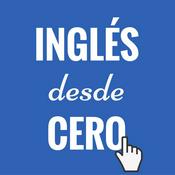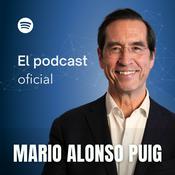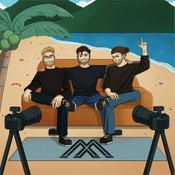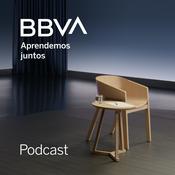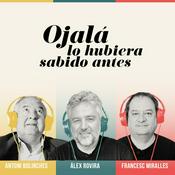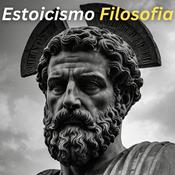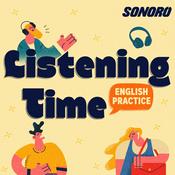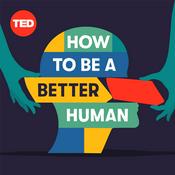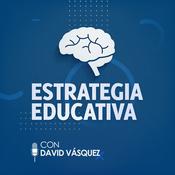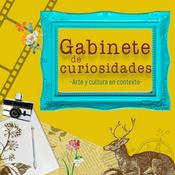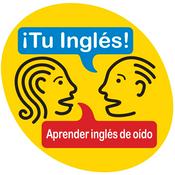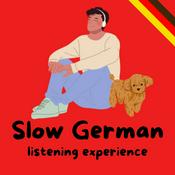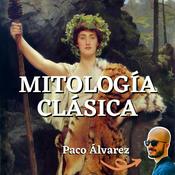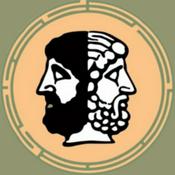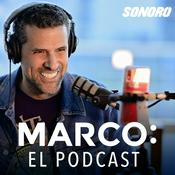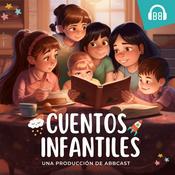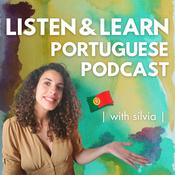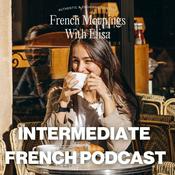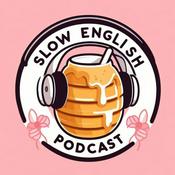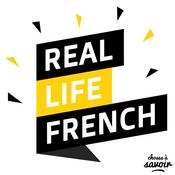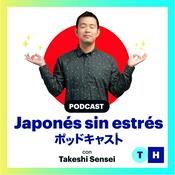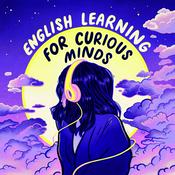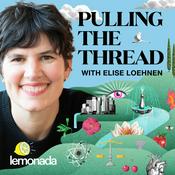131 episodios

Listener Q&A – October 2025
07/12/2025 | 1 h 4 min
In our latest live Q&A with podcast supporters, we discuss Kara’s progress on her latest book (about Nefertiti!!!!), the opening of the Grand Egyptian Museum, the challenges of pronouncing ancient Egyptian words (vocalization is hard and a task we try to avoid), whether or not Cleopatra really committed suicide (short answer: NO), our top-three favorite tombs (Sennefer, Ramose, etc etc and why is Osirisnet down!?), and more. Read more about Kara’s perspective on the death of Cleopatra in her book, When Women Ruled the World: Six Queens of Egypt. Explore tombs in the Valley of the Kings via the Theban Mapping Project website!Learn more about the Grand Egyptian Museum here. Someday we will visit, but not this day…. Get full access to Ancient/Now at ancientnow.substack.com/subscribe

Restitution after Reuse: How 21st Dynasty Egyptian Rulers Healed the Harms Done to Royal Coffins and Mummified Kings
06/11/2025 | 1 h 16 min
Kara and Amber return to the royal caches for Part II of their deep dive into the coffins reused for the re-Osirification (!!) of Thutmose III and Ramses II. Building on her new open-access article in Arts, Kara lays out how 20th–21st Dynasty priests “withdrew” value from royal burials during crisis and then ritually “paid it back,” stripping sheet gold but restoring a solar substitute (thin gilding or even just yellow washes of paint), covering coffin interiors with Osirian black resins, adding protective iconography and red paint as apotropaic force fields, and re-adding elements of kingship and human agency. Along the way, Kara and Amber map the politics of reuse within the royal caches of KV35 (the tomb of Amenhotep II in the Valley of the Kings) and TT320 (a reused 18th Dynasty queens tomb at Deir el Bahari used to rebury “preferred” kings and queens and the final resting place of many of the Amen Priesthood). They discuss whether or not the coffin reused for Thutmose III was originally made for him, and consider the material record through feminist and new-materialist lenses, looking at how ritual tries to reconcile scarcity, power, and piety. It’s a practical guide to what Egyptians thought were the essential ritual elements for a king to transform—gold/solar, earth/Osiris, iconography/protection, kingship, and human agency—and why they were significant.Show notesFor a discussion of the ritual repair of mummies from the Deir el Bahri 320 cache, check out Afterlives of Ancient Egypt, Episode #88.For more about Thutmose III and the veneration of royal ancestors, check out Afterlives of Ancient Egypt, Episode #83.SourcesBrown, Nicholas. 2020. “Raise Me Up and Repel My Weariness! A study of the coffin of Thutmose III (CG 61014).” MDAIK 76/77: 11-35.Cooney, Kathlyn. “Surviving New Kingdom Kings’ Coffins: Restoring the Art That Was.” Arts 2025, 14(3), 57; https://doi.org/10.3390/arts14030057.Cooney, Kara. 2024. Recycling for Death: Coffin Reuse in Ancient Egypt and the Theban Royal Caches. Cairo and New York: The American University in Cairo Press. [Buy it on Amazon or on the AUCP website.] Get full access to Ancient/Now at ancientnow.substack.com/subscribe

Cleopatra, Patriarchy, and the Trap of Honor
24/10/2025 | 1 h 9 min
CW// self-harm and suicideKara and Amber take on the most famous death in all of antiquity—Cleopatra VII’s—and ask what “honor” really means when the sources are Roman, i.e. biased AF, and the stakes are imperial, that is Octavian is using Cleopatra’s fall to condense all power into the hands of one person, his own. Starting with a timeline of events, Kara and Amber unpack Octavian’s propaganda about Cleopatra’s death by suicide, and Kara argues that the suicide story serves Rome far more than it serves Egypt’s last queen. Using David Graeber’s Debt as a lens, they consider the ways in which honor, debt, and violence travel together in patriarchal systems—and how those rules are gendered. Antony’s suicide reads as “honorable,” while Cleopatra’s is framed as hysterical and selfish and maternal abandonment—all the worst things a woman within patriarchy could do. They probe the politics of narratives about “honor” that trap women who rule (with nods to Hatshepsut, Nefertiti, and Zenobia). The result is a sharp, feminist read of Cleopatra’s end.Or, as Kara likes to say: Suicide my ass… he straight up killed her and lied about it.Fight me. :)Show notesDavid Graeber’s DebtCheck out our other episodes on Cleopatra:Episode #57 – Reception, Ownership, and Race: Netflix’s “Queen Cleopatra”Episode #60 – Part II: Reception, Ownership, and Race: Netflix’s “Queen Cleopatra”Episode #82 – The Death of Cleopatra: Murder or Suicide? Get full access to Ancient/Now at ancientnow.substack.com/subscribe

How ancient societies collapsed
19/10/2025 | 1 h 5 min
Get full access to Ancient/Now at ancientnow.substack.com/subscribe

Using the Corpses of Dead Kings as Power Talismen: A Case Study of the Coffin of Thutmose III
18/10/2025 | 1 h 21 min
Kara and Amber unpack what Kara has described as perhaps the most consequential object of her career: the coffin used to (re)bury Thutmose III. The story behind this king’s coffin spans centuries—running from the height of the 18th Dynasty—when it was first made—through the Late Ramesside turmoil—when it was first exhumed—and into the 20th–21st Dynasties—when the coffin was opened, closed, and reopened to source gold and use the body of the king as a kind of talisman for power. This coffin provides an excellent case study to help us understand how royal burials—and royal corpses—were manipulated, remade, and redeployed as tools that manufactured social power. Kara walks us through the forensic clues on the object itself—two uraeus holes (think vulture and cobra on the mask of Tutankhamun!), layers of plaster (that means redecoration!) tool marks (scraping away all that gilding!), traces of gilding (regilding a thin layer after taking a thick layer), and multiple sets of mortise-and-tenons (as the case and lid sides get thinner and thinner!)—to show at least two major interventions before the coffin was finally cached in Deir el-Bahri 320, stripped of just about all its precious materials. During this discussion, Kara and Amber explore some of the reasons Thutmose III was resurrected as a divine ancestor by later generations of warlords (like Payankh and Herihor!), how “caretaking” and commodification coexisted, and what these acts can tell us about civil conflict, migration, and elite replacement in the late Bronze Age. This is a forensic case study that reveals object stratigraphy as power politics. Show notesFor a discussion of the ritual repair of mummies from the Deir el Bahri 320 cache, check out Afterlives of Ancient Egypt, Episode #88.For more about Thutmose III and the veneration of royal ancestors, check out Afterlives of Ancient Egypt, Episode #83.SourcesBrown, Nicholas. 2020. “Raise Me Up and Repel My Weariness! A study of the coffin of Thutmose III (CG 61014).” MDAIK 76/77: 11-35.Cooney, Kathlyn. “Surviving New Kingdom Kings’ Coffins: Restoring the Art That Was.” Arts 2025, 14(3), 57; https://doi.org/10.3390/arts14030057.Cooney, Kara. 2024. Recycling for Death: Coffin Reuse in Ancient Egypt and the Theban Royal Caches. Cairo and New York: The American University in Cairo Press. [Buy it on Amazon or on the AUCP website.] Get full access to Ancient/Now at ancientnow.substack.com/subscribe
Más podcasts de Educación
Podcasts a la moda de Educación
Acerca de Afterlives of Ancient Egypt with Kara Cooney
Escucha Afterlives of Ancient Egypt with Kara Cooney, Inglés desde cero y muchos más podcasts de todo el mundo con la aplicación de radio.es
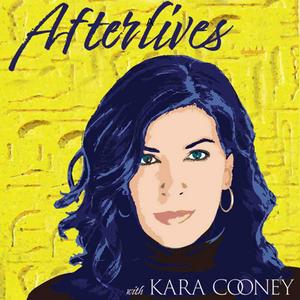
Descarga la app gratuita: radio.es
- Añadir radios y podcasts a favoritos
- Transmisión por Wi-Fi y Bluetooth
- Carplay & Android Auto compatible
- Muchas otras funciones de la app
Descarga la app gratuita: radio.es
- Añadir radios y podcasts a favoritos
- Transmisión por Wi-Fi y Bluetooth
- Carplay & Android Auto compatible
- Muchas otras funciones de la app


Afterlives of Ancient Egypt with Kara Cooney
Descarga la app,
Escucha.
